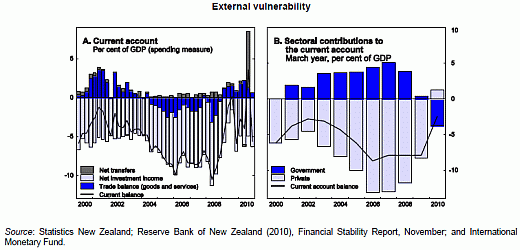
Achieving faster growth will require progress across a broad policy front. This includes bolder fiscal consolidation in the form of spending restraint, coupled with tax and pension reforms to boost national saving. These measures would allow interest rates to stay low for longer and create room for the exchange rate to ease, thereby facilitating the needed rebalancing of the economy, boosting output of tradable goods and services.
Favourable tax treatment of housing and inefficient regulatory constraints on supply should be removed. These distortions exaggerated the surge in house prices, giving rise to wider wealth inequalities and a heavy dependence of households’ long term financial positions on volatile property values. Policy priorities should include further tax reforms to level the playing field for saving and investment decisions, while improving the efficiency of land use policies and the overall urban planning system.
Regaining regulatory best practice and improving management of the government’s considerable asset holdings could help boost productivity growth. New Zealand’s long standing front runner status in product market regulation has been eroded away over the past decade. Regulatory governance should be further fortified to improve the overall investment environment, while moving towards full or even partial privatisation of state controlled commercial assets would strengthen market discipline and transparency.
Green growth would help to consolidate New Zealand’s long run growth potential. As an exporter of resource based goods and services, its “brand” relies on the environmental integrity of its output and policies. The emissions trading scheme is a major development, but market based instruments to give natural assets a value should be used more broadly, notably to allocate water efficiently.





